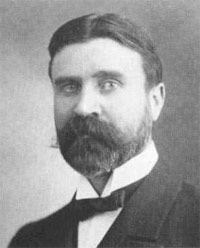In 1915, after about fifteen years of experience, the Department of Health of New York City, in its official Weekly Bulletin, December 18, 1915, announced the total failure of diphtheria antitoxin and all other measure of treatment based upon the bacilli hypothesis to reduce or control the prevalence of diphtheria.
Reporting a conference held at the Department of Health, It said:-
“Thus it was generally agreed that the prevalence of diphtheria was as great, or even greater now as if it was years ago, although of course, (Sic) the mortality from that disease has been very greatly reduced. In other words, although the administrative efforts of the health authorities-that is, the provision of facilities for early diagnosis and the introduction in the number of the Antitoxin treatment has produced a striking reduction in the numbers of deaths, they have been wholly without influence on the number of cases occurring.”
The oriental expedient of trying to “save face” by emphasizing reduced mortality is as shallow as the former claims of ability to reduce and control the prevalency of the disease; for it can easily be shown that the reduced mortality is due more to other causes, some of them purely natural than measures based upon the bacillar hypothesis.
The ridiculous “Swat the Fly” campaigns, enthusiastically conducted in various parts of the country in recent times, afford another example of the prevailing ignorance of the law of causation. Of what use is it to “swat the fly” while no attention is given to the uncovered garbage pails, the reeking manure heaps and privy-vaults and the numerous other filth centers which are his breeding places?
Ignorance or misapprehension of the Law of Causation is the strongest and most serious indictment that has been brought against the advocates of bacteriology as a foundation for therapeutics. Brilliant and successful as have been the attainments of bacteriologists in creating a new science of sanitary engineering, they failed, and must continue to fail, to establish bacteriology as the basis of a true therapeutics. The fatal tendency in this department of medical research to focus attention and effort upon *one cause to the exclusion of all other inevitably leads in to error and failure.
In cholera, for example, admitting the existence and presence of the bacilli as one causative factor, we still have to reckon with sanitary, atmospheric and telluric conditions; with economic and social conditions and habits of life; with means and modes of transportation and intercommunication between individuals and communities; with individual physical, mental and emotional states etc., all of which are essential factors, in some combination, in determining and modifying the susceptibility of individuals to the bacilli; for without some combination of these factors the bacilli are impotent and the disease would never occur. Each of these factors is a cause at least equal in rank with the bacilli, and any successful method of treatment must able to meet all the conditions arising from any existing combination of the causes.
This may seem like an impossible requirement, but experience proves that homoeopathy, with a mortality record in cholera as low as four per cent and less, against a record as a high as seventy per cent under other forms of treatment, is able to meet it. The secret of this success is that homoeopathy does not direct its efforts primarily or solely to the destruction of the *proximate physical cause of the disease (the micro-organism), but against *the disease itself; that is, *the morbid vital process as manifested by the symptoms, using symptomatically similar medicines capable of causing a *counter action of the organism *similar in nature to that of the pathogenic agent, neutralizing its effects and thus restoring systemic balance, or health.
“From nothing, from a mere negation no consequence can proceed. All effects are connected by the law of causation with some set of *positive conditions; negative ones it is true, being almost always required in addition. In other words, every fact or phenomenon which has a beginning, invariably arises when some certain combination of positive facts exists provided certain other positive facts do not exists.” (MIll.)
Thus diphtheria may be prevalent in a community, and the specific micro-organism (Klebs-Loeffler bacilli) of that disease be present in the throats of may healthy individuals; but if those individuals have a high or sufficient resistance to the action of the bacilli, and are not therefore susceptible to infection, they destroy the bacilli and escape the disease. The necessary combination of positive facts and conditions does not exist for them.
The power of the bacilli or other infectious agents is always relative and conditional, never absolute as many are led to believe. The bacilli, therefore are not the sole cause of the disease, but only one possible factor in a group or combination of causes or condition, all of which much exist and act together before the disease can follow.

